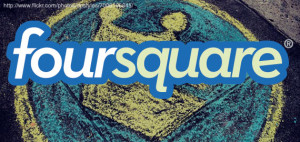According to a report in the Wall Street Journal (WSJ) Foursquare will soon be charging a small number of partners to use its Venue Database. Recently Microsoft and Foursquare agreed to a $15 million investment/licensing deal that brings Foursquare content to Bing search results and Windows Mobile. According to the WSJ article: The New York startup is […]
According to a report in the Wall Street Journal (WSJ) Foursquare will soon be charging a small number of partners to use its Venue Database. Recently Microsoft and Foursquare agreed to a $15 million investment/licensing deal that brings Foursquare content to Bing search results and Windows Mobile.
According to the WSJ article:
The New York startup is negotiating with the heaviest users of its data to pay fees or offer services in return, Chief Operating Officer Jeffrey Glueck said. Deals will be reached on an ad-hoc basis with each developer and will affect under 1% of the 63,000 companies that use Foursquare’s database, said Mr. Glueck, a longtime Internet executive who joined Foursquare earlier this month.
The move is logical as Foursquare makes a more focused effort to monetize. But it also generally flies in the face of the more recent trend toward making the basic location database free (see, e.g., Factual). Several years ago local databases were only available from three primary sources: Infogroup, Acxiom and Localeze (now part of Neustar). These were all licensing deals.
Over the past four years multiple parties entered the market providing free business data and thus putting pressure on the licensing model. The relative quality of these various datasets, however, has never been systematically analyzed.
While Foursquare says it will only be charging its largest customers other users may preemptively start looking around for alternatives — not unlike when Google Maps raised its API fees. Ironically, Foursquare itself switched from Google Maps to OpenStreetMap when that happened.
As mentioned, relative to others, it’s not entirely clear how accurate and complete Foursquare’s Venue Database is. Since it was almost entirely built by users chances are it’s pretty accurate, though it may not be complete.
Beyond basic business data Foursquare also has enhanced content (e.g., Tips) about locations and venues that are valuable (and available via API). These are probably more valuable than the basic venues database, given that they’re unique — like Yelp reviews.


